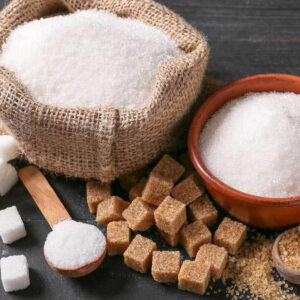The difference between beet sugar vs cane sugar extends beyond taste to how they are cultivated.
A Thorough Consider the Conveniences and Uses of Beet Sugar Vs Cane Sugar for Sweetening Options
In the realm of sweetening, both beet sugar and cane sugar deal distinct advantages and cooking roles, albeit with similar nutritional profiles. While beet sugar boasts a neutral flavor suitable for different dishes, cane sugar enriches dishes with subtle sugar touches.
Beginnings and Handling Approaches of Beet Sugar and Cane Sugar
Beet sugar and cane sugar, two predominant sweeteners, originate from very unique plants and undertake various handling approaches. Beet sugar is removed from the sugar beet, an origin veggie, primarily grown in cooler environments. The handling entails cutting the beetroots to remove the juice, which is then cleansed and crystallized into sugar. This method is relatively efficient, enabling sugar recovery from numerous phases of the procedure.
Conversely, cane sugar comes from the sugarcane plant, an exotic turf. Its processing begins with harvesting the cane, squashing it to get the juice, and then steaming this liquid to develop sugar crystals.
Nutritional Contrast: Beet Sugar Versus Cane Sugar

When comparing the dietary web content of beet sugar and cane sugar, it comes to be apparent that both kinds give a similar energy value. Each provides concerning 4 calories per gram, primarily as sucrose, which is a straightforward carb. This similarity includes their absence of necessary nutrients; neither sort of sugar contains significant amounts of vitamins or minerals. Both beet and cane sugar are 99.9% pure sucrose, making them basically identical in regards to calorie web content and dietary profile.
However, small differences may occur from the minimal micronutrient that remain after processing, though these are also small to effect general health and wellness. For example, cane sugar can keep traces of molasses, depending upon the degree of refining, which might include small amounts of calcium, iron, and potassium. Beet sugar, on the various other hand, typically undertakes a procedure that gets rid of these trace elements better, causing an even purer form of sucrose.
Culinary Makes Use Of and Taste Profiles
Regardless of their nutritional resemblances, beet sugar and cane sugar diverge especially in their culinary applications and taste subtleties. Beet sugar, derived from sugar beetroots, usually has a really neutral preference, making it a preferred option in cooking where it perfectly incorporates without altering the flavor account of other active ingredients.
Chefs and home chefs alike choose sugars based on these qualities. While both sugars function likewise in regards to sweetness and physical residential or commercial properties, the minor taste difference can influence the result of a recipe significantly, directing the option in between beet and cane sugar based on the desired end result in culinary productions.
Health Implications of Consuming Beet and Cane Sugars
Although beet sugar and cane sugar are typically made use of mutually in cooking and baking, their health implications can vary discreetly as a result of their distinctive handling approaches. Both sugars provide about the same amount of calories and carbohydrates per teaspoon, essentially providing similar energy contributions with no innate nutritional benefits. However, the refining process for each and every sugar can modify the visibility of trace element and substances, although these variations are usually very little and not considerable adequate to influence one's health meaningfully.
The primary wellness worry about both kinds of sugar get redirected here pertains to their contribution to excessive calorie consumption, possibly leading to weight gain, and associated conditions like type 2 diabetes and heart problem when consumed in large quantities. For that reason, regardless of the resource, moderation is type in taking in beet or cane sugars. Wellness experts often advise limiting sugarcoated in any type to maintain ideal health outcomes.
Ecological Impact and Sustainability of Sugar Production
Conversely, sugar beet handling has a tendency to produce large amounts of pulp waste, which can be repurposed as pet feed or transformed right into bioenergy, consequently alleviating some environmental impacts (beet sugar vs cane sugar). Inevitably, the sustainability of sugar manufacturing depends upon adopting more eco-friendly farming strategies and waste monitoring methods to reduce the eco-friendly impact of both sugar types

Conclusion
Beet sugar is noteworthy for its sustainability and neutral taste, whereas cane sugar is treasured for its rich taste. Consumers need to think about these factors, along with the ecological implications of sugar look at here manufacturing, to make informed selections about sugar intake that straighten with that site culinary demands and moral values.